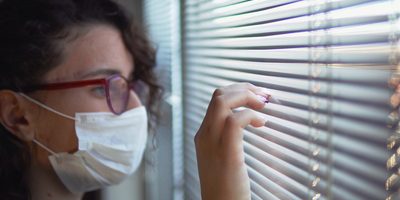
Parents should prepare for asthma spike among children
Parents should review action plans and ensure they have correct medications to prepare for an asthma spike among children, a preventable trend, now that children have returned to school.
Professor Christine Jenkins, a respiratory researcher at The George Institute for Global Health and The University of Sydney, says there is a strong relationship between common colds and asthma, and the return to school after summer holidays.
“Simple summer colds trigger asthma in children with asthma,” says Professor Jenkins. “The peak occurs within the first two or three weeks when children return to school and they share their respiratory infections with each other.”
“Parents and care givers should take preventive steps to assist with controlling asthma attacks, by visiting their local GP and reviewing their action plans and medications.
“Reviewing a child’s asthma action plan should be done annually because as children grow,
their medication needs also change.“Taking control of asthma treatment is like taking control of diabetes treatment. Children change, therefore their asthma and their medication needs change.”
About one in nine Australian children have asthma. Up to 350 children per 100,000 population can end up in the emergency department in summer, compared to about 50 people aged over 65 per 100,000 populations.
Despite these figures, there is very little work being done around the transmission of viral infections and asthma, however research suggests that simple measures like covering up a cough and sneeze can reduce infection within families.
“These simple measures could minimise the sudden rush to hospitals that comes at this time of year, and the time parents have to take off work to stay home with sick children, making this asthma peak preventable,” says Professor Jenkins.
Professor Jenkins, who is also a hospital respiratory specialist, said emergency departments and respiratory specialists preparing for a jump in the numbers of young children being rushed to hospital with asthma at this time of year.
“If the whole community takes a more proactive approach we could have some impact not
only on little children, but also on older people who are admitted to hospital with respiratory infections and may even die as a result of the complications.“We are recognising more and more how important these simple viruses are in triggering asthma attacks.”
Top tips
1. Parents be aware – a cold spreads rapidly in a family
2. Take care handling children’s things
3. Encourage good hand hygiene amongst all members of a family – with and without colds.
4. Encourage covering up each cough and sneeze: arm to face is as good as hand to face
5. Annually review action plans and medications to prevent and control acute attacks and have these displayed at schools and daycare




